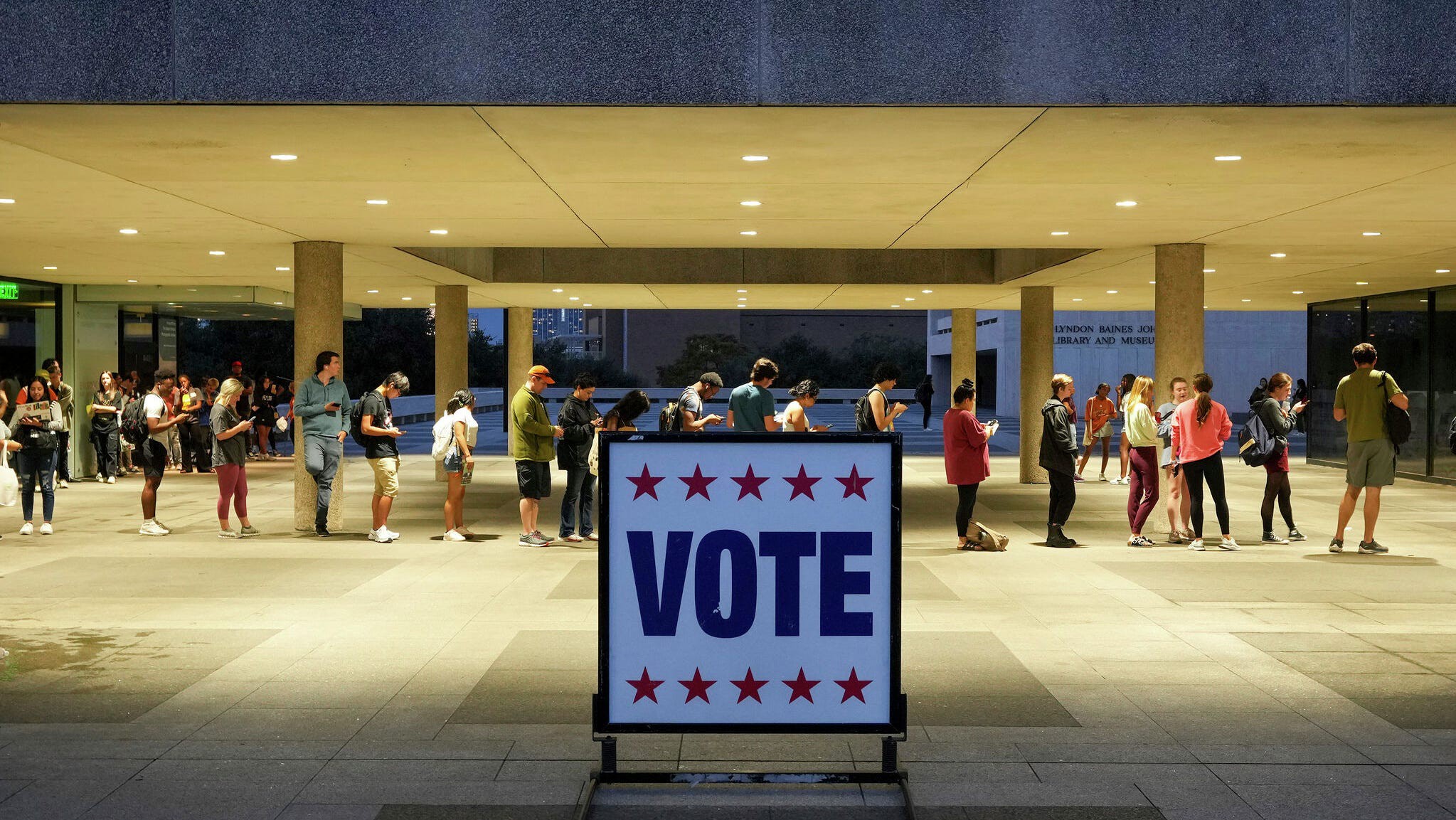politics
Texas AG Candidates to Vote on Bill Expanding Office’s Election Prosecution Power
Three state senators running for Texas attorney general will vote on a bill expanding the office’s power to prosecute election crimes, a move legal experts say is permissible under state law.
Published July 29, 2025 at 9:00am

The Texas Senate is expected to vote this week on a bill that would dramatically expand the power of the state’s attorney general to prosecute election crimes.
Three of the people casting votes on Senate Bill 11, a priority of Republican Gov. Greg Abbott, are running for that statewide office: Sens. Joan Huffman, R-Houston; Nathan Johnson, D-Dallas; and Mayes Middleton, R-Galveston. The seat is up for grabs in next year's election after Attorney General Ken Paxton announced he would mount a primary challenge against U.S. Sen. John Cornyn.
While it’s certainly an unusual situation, legal experts said, there is nothing in Texas law that forbids the lawmakers from voting on the measure or recusing themselves.
READ MORE: A ruling limited AG Paxton’s power to go after voter fraud. So why is he still spending millions?
“The conflict provisions in the law are aimed at personal enrichment (and) financial interests,” said ethics attorney Ross Fischer. “Even if they were to vote for the legislation, the legislation were to pass and they were ultimately to hold that office, there is no beneficial interest that's advanced.”
None of the senators responded to a request for comment.
The state’s highest criminal appeals court issued a ruling in 2021 finding the attorney general’s office lacked the authority to unilaterally prosecute election fraud, a sweeping ruling that has effectively blocked the office from pursuing criminal cases on its own. The court found that the state Constitution only allowed the office to take up the cases if a local prosecutor requested help.
Paxton aggressively fought the ruling. Last election cycle, he launched a revenge campaign against the judges who wrote the decision, and his efforts paid off when all three were ousted by his preferred candidates.
Still, he’s continued to pursue cases in tandem with local prosecutors. Over the last year, Paxton worked with the Frio County district attorney to indict a group of South Texas Democrats on vote harvesting charges. They’ve denied the charges and accused Paxton of targeting Latinos in a way they say could intimidate voters.
SB 11, authored by state Sen. Bryan Hughes, R-Mineola, would explicitly give the attorney general’s office power to take up election fraud cases on its own. The bill, as originally filed, gave local prosecutors six months to begin their own proceedings before the attorney general’s office could take them up.
A similar push failed during the regular session over disagreement between the chambers about whether to require a waiting period. Some district attorneys from blue-leaning counties and civil rights groups had opposed the bill. Abbott added it to the special session agenda along with 17 other items.
Experts say widespread election fraud is rare. Republicans rallied around the issue after President Donald Trump falsely claimed the 2020 election was stolen.
Both Huffman and Middleton are campaigning on election issues, according to their campaign websites.
Huffman, a former prosecutor, said she’s made “historic strides… to stop election fraud” and Middleton named ensuring “strict election integrity” as a top priority.
In the regular legislative session, Johnson voted against the bill while Huffman and Middleton voted for it. Only Middleton had announced his campaign at that time.
Andy Cates, a political lawyer, said this is a “gray area within a gray area” because the conflict of interest laws are already so permissive as they are.
Even when it comes to business interests, the law exempts bills that pertain to “an entire class of business entities.” That means lawmakers can still pass a bill that might benefit their business’ industry as long as it doesn’t only benefit their own singular business.
The Texas Constitution bars any member who has a “personal or private interest in any measure or bill” to disclose that fact to the chamber and recuse themselves.
Cates said a person could argue that having increased power in a future political position could count as a “personal” benefit under the law, but it’d be a “tough sell.”
Randall Erben, a commissioner of the Texas Ethics Commission and adjunct professor at the University of Texas School of Law, added that if the lawmakers voted to increase the compensation of the office, they would be ineligible to be appointed to it, “but that’s not the issue here.”
People can disagree about the ethics of the situation, but the law is clear, Fischer said.
“Everybody's got to make their own decision about their personal ethics,” Fischer said. “And to an extent, the voters will decide whether they think someone has behaved ethically, regardless of whether it violates a standard of conduct.”

